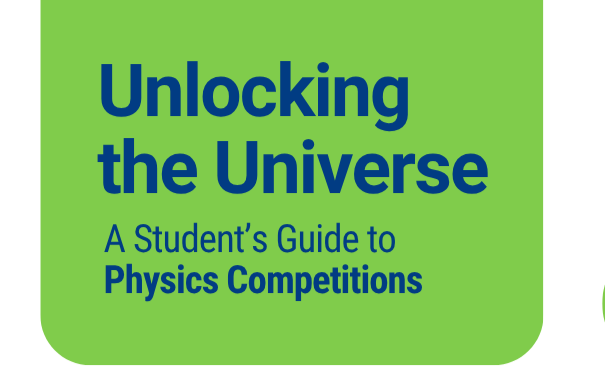Have you ever wondered how GPS works, why time slows near a black hole, or what keeps satellites in orbit? If these questions excite you, physics competitions might be your perfect playground.
In high school, physics contests offer a powerful way to go beyond the textbook to stretch your thinking, explore challenging problems, and even open doors to national and international recognition. Whether you're a beginner or a future theoretical physicist, there's a competition for you.
In this guide, we’ll walk through the top physics competitions for high school students, how to prepare, and why they matter.
Why Compete in Physics?
Physics competitions aren't just about solving equations. They're about developing the mindset of a scientist, curious, creative, and analytical.
Benefits of Participating:
- Explore advanced concepts early (like special relativity or quantum mechanics)
- Strengthen your college application with academic distinction
- Build resilience by solving problems that don’t have obvious answers
- Meet peers and mentors through camps and online communities
- Potentially represent your country on the international stage
Top Physics Competitions for High School Students
1. F=ma and the U.S. Physics Olympiad (USAPhO)
Best For: U.S.-based students aiming for top-tier competitions
This is the gateway to the prestigious U.S. Physics Team.
- F=ma Exam (January–February): 25 multiple-choice mechanics problems, 75 minutes. No calculator allowed.
- USAPhO Exam (April): Top scorers from F=ma are invited to take this advanced free-response exam.
Students who excel at USAPhO may be invited to a national training camp and selected to represent the U.S. at the International Physics Olympiad (IPhO).
Pro Tip: Start preparing early with past F=ma exams and AP Physics C or equivalent content.
2. PhysicsBowl
Best For: Beginners and school clubs
- Format: 40 multiple-choice questions in 45 minutes. Two divisions: Division 1 (first-year physics students) and Division 2 (second-year or advanced students).
- When: March–April
- Unique Twist: Compete individually and as part of a school team ranked by region and nationally.
Fun Fact: Many physics teachers use this as a fun class challenge!
3. British Physics Olympiad (BPhO)
Best For: International students and students seeking written challenges
- Open Globally: Though run by Oxford University, students worldwide participate.
- Levels: Rounds range from intermediate challenges to Olympiad-level written papers, often requiring deep problem-solving skills.
- When: Throughout the academic year
4. International Physics Olympiad (IPhO)
Best For: Elite national champions
- Format: Theoretical and experimental exams over several days.
- Who Qualifies: Only 5 students per country, typically selected through a national physics Olympiad process (e.g., USAPhO in the U.S., INPhO in India, etc.)
- Prestige: One of the most competitive and respected science Olympiads in the world.
5. Experimental and Innovation Competitions
Physics isn't only theoretical, it's hands-on too! Consider:
- Regeneron ISEF (International Science and Engineering Fair): Physics-based inventions and experiments qualify.
- ExploraVision: Solve a real-world problem with a physics- or tech-based innovation.
- Breakthrough Junior Challenge: Submit a short video explaining a big physics idea creatively.
These offer a chance to blend science, creativity, and communication.

How to Prepare for Physics Competitions
1. Master the Basics
- Study AP Physics C (Mechanics and E&M) or IB/A-Level Physics
- Use MIT OCW or Khan Academy to deepen your understanding
2. Practice, Practice, Practice
- Solve past F=ma, PhysicsBowl, and BPhO papers
- Work through Irodov or Halliday for problem-solving strength
3. Join a Community
- Online forums like Art of Problem Solving (AoPS)
- Local or school physics clubs
- Discord servers and Reddit threads (like r/PhysicsStudents)
4. Experiment at Home
- Build circuits, test pendulums, explore Arduino-based physics projects
- Simulate experiments using free tools like PhET simulations
What Do Colleges Think?
Top universities love to see evidence of academic passion and excellence, and physics competitions are a strong signal.
Especially for students interested in engineering, physics, or quantitative fields, participating in Olympiads or competitions like PhysicsBowl can:
- Enhance your academic profile
- Help you stand out in STEM programs
- Provide great content for personal statements or essays
Final Thoughts
Physics competitions aren’t just about winning medals; they’re about asking the kinds of questions that lead to new ideas, innovations, and even Nobel Prizes.
Whether you’re just starting or shooting for the International Physics Olympiad, take the first step by exploring one competition. You might discover not just how the universe works but how you work best as a learner and thinker.
.png?width=175&height=73&name=ORIGINAL%20LOGO%20Blue%20and%20Green%20(1).png)
.png?width=50&name=author-image%20(2).png)

